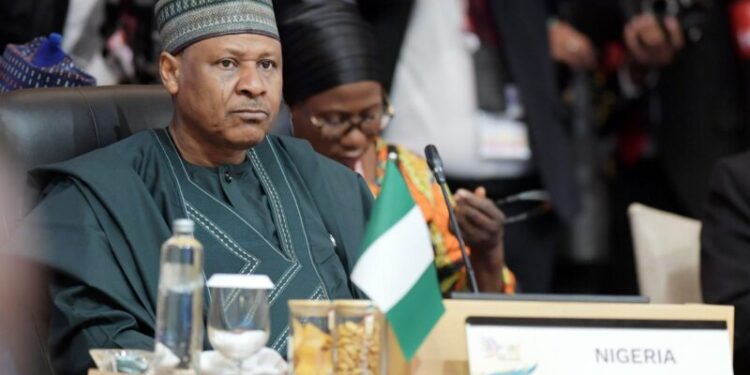The Federal Government, says the N75b Loan Scheme for Micro, Small, and Medium Enterprises (MSMEs) will diversify the Nigerian economy, create jobs, promote value-addition, revitalize communities, and boost exports.
The Minister of Information and National Orientation, Alhaji Mohammed Idris, made this known at the Town Hall meeting on the loan on Tuesday in Abuja.
According to Idris, the town hall meeting is one of the most important business support policies of the President Bola Tinubu administration.
He said that the development is another concrete manifestation of the unwavering determination of Tinubu to fulfill the Renewed Hope Agenda that remains the centre of his governing vision for Nigeria.
Idris maintained that the first of the eight pillars of that agenda is focused on delivering robust economic growth, adding that small and medium-sized businesses are the engine of the Nigerian economy.
According to him, a 2021 National Bureau of Statistics reports that more than 95 per cent of all the businesses that exist in Nigeria are Nano, Micro, Small and Medium Enterprises (NMSMEs).
“And collectively, they employ over 80 per cent of the nation’s labour force, and contribute close to half of national Gross Domestic Product.
“It is very clear therefore that, when we invest in our NMSMEs, we are oiling the engine of national prosperity.
“The first phase of this 200 billion Naira Federal intervention, amounting to N50 billion disbursed as one-off conditional grants, was targeted at the Nano-businesses segment of the NMSMEs.
“Now, this second phase, of N75 billion, is targeting the MSMEs.
“These single-digit loan facilities will be complemented by the ongoing tax reforms designed to reduce the tax burden on Nigerian businesses.
“The goal is to further diversify the Nigerian economy, create jobs, promote value-addition, revitalize our communities, and boost exports, and foreign exchange inflows,” Idris said.
The minister also stressed that the federal government was keen to ensure that those targeted support programmes would go a long way towards alleviating the pains and challenges being experienced on account of the bold economic reforms.
He added that the reforms are being implemented to put the country back on the track of sustainable growth and prosperity.
“We will stop at nothing to reposition Nigeria for rapid economic growth, and in doing this, we will prioritize our hardworking and energetic entrepreneurs, in every part of the country.
“Let me now make this very important point, to all potential beneficiaries, that you have to confidently put in your application for you to stand a chance of benefiting.
“This is a government of equal and fair opportunities for everyone.
“I have no doubt that the selection process for these loans will be guided by the same principles of equity and transparency that the President is determined to entrench in governance in Nigeria.
The News Agency of Nigeria reports that the town hall meeting attracted stakeholders from the presidency, banking and economy sector. (NAN)











